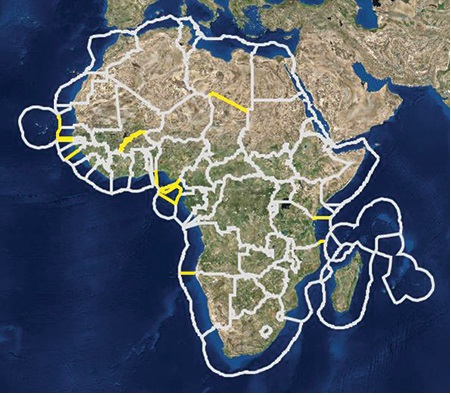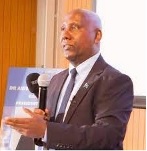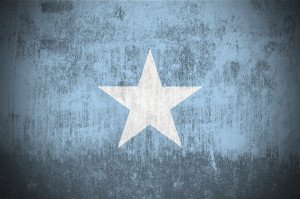By Dr. Aweys Omar Mohamoud
Editor’s note: This piece presents the vision of the author on the way ahead in the upcoming Presidential Elections and beyond. In it, Dr. Mohamoud offers a comprehensive policy blueprint across core dimensions of statehood, including security, legitimacy, humanity, capacity and prosperity. The piece was originally presented as a speech, entitled my vision for Somalia, by Dr. Mohamoud during his presidential campaign launch at the beginning of November 2020.
——————-
Vision for Somalia
Asssalaamu caleykum wa raxmatullaah wa barakaatuhu,
Brothers & Sisters,
Our country has gained independence almost 62 years ago. That was in 1960, AKA the Year of Africa, which brought about the independence of seventeen African nations, including Somalia. The so-called post war ‘wind of change’ was blowing through Africa at the time, signalling the end of colonial rule. The Somali people were part and parcel of that African people’s freedom movement that not only ended colonial rule in Africa by European powers but also brought about the move towards independence and self-determination.
Sadly, some thirty years later, our state collapsed. Most of the sixteen other African countries who became independent in the same year of 1960 as ourselves had gone through their own set of troubles but none of them has completely collapsed the way ours has done. Somalia was generally cited as the locus classicus of State failure.[1] The rest, as they say, is history.

What was the Somalia independence or gobannimo/madaxbannaani about? Was it about us keeping each other in subjection and hardship, especially by the unjust exercise of authority? No, that wasn’t the purpose. Gobannimo was about law, constitution and human rights; justice for the individual; justice for society or social justice; personal liberty; equality before the law; dignity as a human being; the protection of society; the right to due process; freedom from fear and want, and to realize a peaceful and just society.
Where are we today? A few words about the massive humanitarian needs our country faces today are in order. According to reports by the UN and other agencies,[2] 5.2 million people are in dire need, having critical problems related to their living standards. These people are desperate for food, shelter, non-food items (which might include clothing, blankets, bedding, stoves and kitchen sets, water containers and hygiene products), water, sanitation, and hygiene. These people include both IDPs and Non-IDPs (Rural-Urban) and also face critical problems related to their physical and mental wellbeing.
Of the 5.2 million people in need, it is estimated that 3.2 million are children, 1.7 million are adults, and 300 thousand people are elders. There are an estimated 2.6 million internally displaced people (IDPs) in the country.[3] Droughts and floods are two other common factors that drive humanitarian need, and the millions of people in need are dependent on international humanitarian assistance for their survival.
Decades of civil war and political fragmentation have made our country one of the poorest countries in Sub-Saharan Africa. Nearly seven out of 10 Somalis live in poverty, the sixth-highest rate in the region. Poverty is both widespread and deep, and unless appropriate policies are implemented, persistent poverty and vulnerability will impede future economic and social development.
According to the World Bank’s SPVA,[4] almost nine out of 10 Somali households are deprived of at least one fundamental dimension: access to income, electricity, education, or water and sanitation. Despite better conditions in cities, urban populations still struggle with hunger, with high absolute poverty (64%), and high non-monetary poverty (41%). Hence the so-called triple burden of malnutrition which harms children, adolescents and women, and causes intergenerational cycles of malnutrition. Malnutrition and undernutrition cause stunting and wasting; poor growth and development; poor cognition which affects children’s school readiness and performance; poor earning later in life; and poor health and risk of death.[5]
No wonder, we are at the bottom in the region when it comes to most social and economic indicators. More than three million children in Somalia are out of school,[6] and our health indicators are among the lowest in the world.[7] We have some of the highest child mortality rates, and under-five deaths, and some of the poorest maternal and new-born health services. Child protection and social protection and equity are all non-existent. Ongoing armed conflict, insecurity, lack of state protection, and recurring humanitarian crises expose civilians to serious abuse.
The UN Security Council’s ‘Report of the Secretary General on Somalia’ published 13 August 2020, covering major developments in Somalia from 5 May to 4 August 2020, reported ‘that the security situation remained volatile, with 288 incidents in May, 269 in June and 218 in July. Most of those incidents were crime-related killings and shootings and Al-Shabaab attacks, including those using improvised explosive devices. Levels of crime and armed conflict-related incidents have remained steady since January … The number of terrorism-related incidents remained at an average of around 75 per month in May and June, with 53 incidents in July’ (para 18).[8]
Al-Shabaab retains de facto control over significant portions of the country, moves freely, collects “taxes,” and exerts its extremist authority in the areas under its control. It has also conducted multiple high profile terrorist attacks and appeared increasingly to use targeted assassinations against key government figures and community leaders to undermine the credibility and effectiveness of Somali government institutions.[9]
I talked above about 16 other African countries that became independent like us in the Year of Africa, 1960. Whereas our state failed some thirty years ago and we’re still failing horribly to address our post-conflict insecurity in the form of al-Shabaab, clan fighting, organized crime and banditry, most of these 16 other countries have been able to provide security for their citizens by maintaining their internal security institutions – an essential step along the road to sustainable peace and renewed social and economic development. Our country is a prime example that without security, there can be neither peace, nor development, nor justice.
Yes, of course, we must track terrorists down with a stronger military, tighten the net around their finances, and improve our intelligence capabilities. But let us also understand that ultimate victory against our enemies will come only by rebuilding our country and bringing hope and opportunity to millions of young Somali people around the country.
It is for this reason that I am entering this race. I want to initiate national youth education, training, employment and empowerment programmes to provide opportunities for employment and income generation to young people in cities across the country. We start in Mogadishu by building two huge zones, called ‘Zones of education, skills, training, employment and economic opportunities’ that can accommodate tens of thousands of young people at any one time. I shall provide more details later.
Ending terrorism would entail, among other things, changing the political reality and mentality that engender it, and the institutionalization of democratic legal authority, and to address the underlying root causes of conflict: corruption, injustice and inequality, exclusion, discrimination and marginalization, extreme poverty and lack of livelihoods, and youth unemployment – to name just a few of the interminable drivers of the conflict. I shall therefore proffer in my political agenda in the coming weeks policy ideas related to how we can transform our politics, security, and economy.
For many decades now, the good name of our country has become synonymous with that tired old phrase “failed state”. The consequences of failed states include conflicts, war, and refugees. That much is evident in Somalia today.
But we should reject the notion that “Somalia’s unending woes are the stuff of hopelessness”. We cannot afford to be hopeless at all – that goes against the grain of who we are! We are Somalis. Our past and the resilience of our ancestors, who have eked out a living in Somalia’s rugged terrain over the centuries, form the basis of our existence today.
The fact is that we won’t lose hope, and we will survive. Indeed, survival can be said to be a leitmotif of Somali history. Despite the unremitting assaults on our autonomy and the horrors of war we experienced late twentieth and early twenty-first century, the Somali people have managed to survive and recreate. That resilience is a testament to the strength of our nation.
That is why I believe that we can still negotiate peace and end the war in our country. And, yes, we can also rebuild the state. But only if our ideas for resolving the long-running conflict are rooted in Somali history and culture, and we heed the lessons of past misdeeds both by domestic power-brokers (i.e., our own leaders) and foreign interveners.
I stand before you today to offer that new form of politics to our country: a new form of politics that addresses the local causes of continuing conflict and the local capacities for change. A new form of politics which recognizes that we need to work together to overcome the issues that we face today and to create a better tomorrow.
Just as civil war is about failures of legitimate state authority, civil peace is about reconstituting a sense of affinity, trust and cooperation, and the creation of inclusive polity, economy and society. We need a new leader who can bring about this sense of affinity between the Somali people.
We also need a new leader who is willing to go beyond traditional reliance on power and coercion, to negotiate peace. While ending the insurgency may require enforcement, violence can be self-sustaining by creating deep animosities that make a stable peace hard to negotiate and by providing a context for the opportunistic use of more violence. Negotiated settlements must ultimately rebuild Somalia’s institutional capacity for self-sustaining peace.
I present myself to you as that new leader who will be willing to use negotiation and mediation as an effective response to our long-running conflict in its myriad forms and to the challenge of building a peaceful nation.
As president, I shall adopt an intentional approach of strategic peace-building that recognizes the role of civil society and cultural and religious leaders in promoting justice and reconciliation. We need to build a more sustainable and locally informed peace that is responsive to the needs and concerns of ordinary citizens, and to fostering a holistic ethic of reconciliation for political healing.
As a leader from a social science background, if elected president, I will put together a knowledge-based government that engages in a systematic activity to acquire knowledge on a host of issues related to public order and internal security; resettling refugees and internally displaced persons; civil administration; political institution building; and economic reconstruction and development.
We shall approach governing Somalia from a variety of scientific perspectives, including political, economic, social, psychological and physical sciences. Our reading and analysis of the five priority topics above will range from classic foundations to cutting-edge thought, covering both theoretical and practical angles, historical trends, human and technological dimensions, as well as operational and strategic viewpoints.

We shall develop analytical tools and frameworks that expand our thinking about the conflict, challenge our assumptions, and are practical and readily usable. As we develop our capacity to understand the conflict in a deeper and more powerful way, we enhance our ability to handle it effectively and in accordance with our most important values about building peace in Somalia. These values can be summarized in the following four coherent and interdependent strategies for transforming the conflict
- from zero-sum confrontations laden with incentives for continued violence into systems of governance where competition for power can be conducted through nonviolent means;
- from contexts dominated by armed groups willing and able to use violence into demilitarized communities where paramilitary formations have either been subordinated to legitimate authority; reintegrated into society, or defeated;
- from lawless and repressive areas and communities where political and criminal elites enjoy impunity into systems of justice that serve the public, preserve order, protect basic rights, and apply the law equitably; and
- from political economies where grey and black markets predominate and illicit wealth determines who wields power into functioning formal economies where the integrity of revenues required for essential state services is protected.[10]
The challenges ahead of us are profound and require inspired problem solving and human resilience. Fortunately, these are attributes that the Somali people have long displayed.
Therefore, let’s utilize the talents of our ingenious people to rebuild our nation.
Stay tuned to Part II
Dr. Aweys Omar Mohamoud
———–
References
[1] G.B. Helman and S.R. Ratner’s, ‘Saving Failed States’ (1992-3) 89 Foreign Policy, 3-20, cited by KREIJEN, GERARD (2004) State Failure, Sovereignty and Effectiveness Legal Lessons from the Decolonization of Sub-Saharan Africa. LEIDEN & BOSTON: MARTINUS NIJHOFF PUBLISHERS, p. 65. Apparently, the article by Helman and Ratner introduced the term ‘failed state’.
[2] See, for instance, Somalia’s Humanitarian Needs Overview 2020 by OCHA, viewed 28th Oct. 2020, < https://reliefweb.int/sites/reliefweb.int/files/resources/2020%20Somalia%20Humanitarian%20Needs%20Overview.pdf>
[3] See Human Rights Watch (2020) World Report 2020: Events of 2019, viewed 28th Oct. 2020, https://www.hrw.org/sites/default/files/world_report_download/hrw_world_report_2020_0.pdf
[4] The World Bank (2019) Somali Poverty and Vulnerability Assessment: Findings from Wave 2 of the Somali High Frequency Survey, Washington, DC: The World Bank, viewed 28th Oct. 2020, < http://documents1.worldbank.org/curated/en/464241565765065128/pdf/Findings-from-Wave-2-of-the-Somali-High-Frequency-Survey.pdf>
[5] See UNICEF (2019) The State of the World’s Children 2019: Children, Food and Nutrition, Growing Well in a Changing World. New York: UNICEF, viewed 28th Oct. 2020, < https://www.unicef.org/media/63016/file/SOWC-2019.pdf>
[6] See Somalia, Education: Every child has the right to learn, UNICEF, <https://www.unicef.org/somalia/education>
[7] See Somalia: World Health Organization Humanitarian Response Plans in 2015, viewed 28th Oct. 2020, <https://www.who.int/hac/donorinfo/somalia.pdf>
[8] See United Nations Security Council Report of the Secretary General on the Situation in Somalia (S/2020/798), dated 13 August 2020, viewed 28th Oct. 2020, <https://www.undocs.org/en/S/2020/798>
[9] See Country Reports on Terrorism 2019 by the BUREAU OF COUNTERTERRORISM, viewed 28th Oct. 2020, <https://www.state.gov/wp-content/uploads/2020/06/Country-Reports-on-Terrorism-2019-2.pdf>
[10] Foreword by Richard H. Solomon, President of the United States Institute of Peace, in Jock Covey et al. eds., (2005) The Quest for Viable Peace: International Intervention and Strategies for Conflict Transformation. Washington, D.C.: United States Institute of Peace Press”.


Leave a Reply